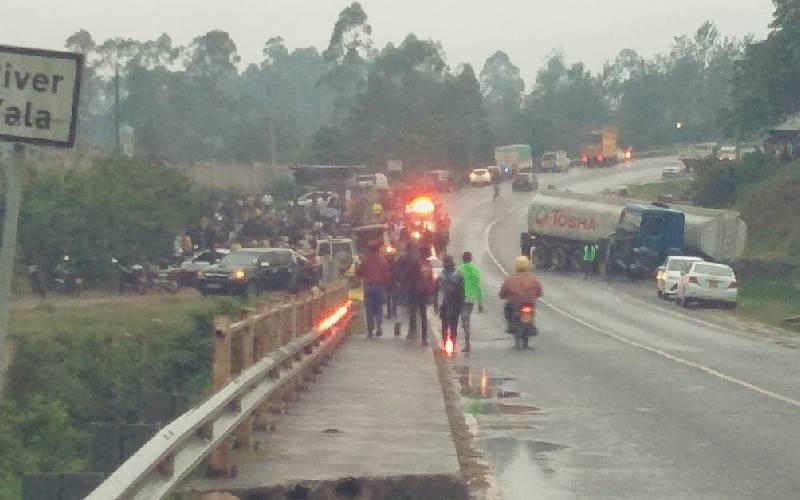The trade union members began their indefinite strike at health facilities on Monday, 6 March, in some instances barring workers from helping patients or entering health facilities.
Surgery was cancelled, ambulances were unable to respond to emergency calls, health workers were forced to remain on shift and look after critical patients and relief workers were not allowed in. The strike went ahead despite the Labour Court issuing an interdict on Friday.
The union has rejected the government’s 4.7% wage increase, demanding a 10% to 12% increase.
It was reported that numerous hospitals in Gauteng, Mpumalanga, the Free State, the Eastern Cape and Mpumalanga were affected, including Chris Hani Baragwanath, Leratong and Tembisa hospitals, all in Gauteng. Pelonomi and Manapo Hospitals in the Free State, Khayelitsha Hospital in the Western Cape, and Tshepong and Moses Kotane hospitals in North West were also affected, along with Kimberly and Upington hospitals in the Northern Cape.
Masibeko Mangiso’s relative helps him outside Nelson Mandela Academic Hospital. (Photo: Hoseya Jubase)
Gauteng
The gates at Leratong Hospital in Krugersdorp reportedly closed at about 4am, preventing anybody from entering or leaving the hospital. A skeleton staff ventilated patients in the wards.
Staff working the night shift at the hospital were met with burning tyres blocking movement in and out of the hospital.
Patients seeking help at Carletonville Hospital were sent home. The hospital issued a statement on its Facebook page, urging patients and visitors to exercise caution when accessing the facility, and said it was working on mitigating any risk related to service delivery disruption as a result of the national strike.
“We remain open for emergency cases and EMS will continue to service critical cases,” the statement added.
Thelle Mogoerane Regional Hospital in Vosloorus, Helen Joseph Hospital in Auckland Park, Chris Hani Baragwanath Hospital in Soweto, and Dr Yusuf Dadoo Hospital in Krugersdorp were reportedly also affected. The entrances to Helen Joseph Hospital and Chris Hani Baragwanath were blocked with burning tyres.

Nehawu members protest outside Helen Joseph Hospital. (Photo: Leon Sadiki)

Protesters outside Helen Joseph Hospital.(Photo: Leon Sadiki)
Affected Gauteng facilities also include Bheki Mlangeni District Hospital, Thelle Mogoerane Regional Hospital, Tembisa Provincial Tertiary Hospital, Goba Clinic, Magagula Clinic, in Ekurhuleni, Kopanong Hospital, Sebokeng Regional Hospital, Heidelberg District Hospital, Johan Heyns Community Health Centre, Levai Mbatha Community Health Centre, Sebokeng Zone 17 Clinic in Sedibeng and West Rand District Hospital.
Read in Daily Maverick: “Hospital strikes causes disruptions as public servants down tools, Chris Hani Baragwanath hardest hit”
Motalatale Modiba of the Gauteng health department confirmed that in some instances ambulances were unable to attend to emergencies because they were unable to leave or enter facilities that had been blocked by protesters.
“This is affecting the Gauteng Emergency Medical Services’ incident response time, leading to delays in responding to distress calls from the public,” Modiba added.
Eastern Cape
Eastern Cape emergency medical services were heavily affected, several hospitals and clinics only offered limited services, and many patients looking to collect medication were turned away.
The dispatch of ambulances from the metro’s control room at Dora Nginza Hospital was interrupted after control room staff were removed from their workstations.
Livingstone Hospital in Gqeberha stopped all elective surgeries and only performed emergency surgery. Protesters shut the gates to both Livingstone Hospital and Dora Nginza Hospital for a while, but these were later reopened.

Nurses sit outside Leratong Hospital during the strike. (Photo: Leon Sadiki)
Protesters burned tyres on the road leading to Dora Nginza Hospital in Zwide, Nelson Mandela Bay. This hospital is the centre for maternal and paediatric care in the metro. Late in the morning the gates were shut but later reopened.
Health officials said they were unsure if tyres burning in the road in front of the hospital were related to the National Education, Health, and Allied Workers Union (Nehawu) strike.
Just before noon, a memorandum was sent from the head of the Eastern Cape health department, Dr Rolene Wagner, giving protesters two hours to return to work, saying that the principle of no work, no pay would apply.

Protesters outside Leratong Hospital in Kagiso. (Photo: Leon Sadiki)
Hospital and clinic services in Mthatha were interrupted as well.
Provincial health spokesperson Sizwe Kupelo said the four other unions were not joining the strike. He added that law enforcement agencies were deployed to deal with acts of criminality and to provide support where this was taking place.
Mpumalanga
According to reports, Rob Ferreira Hospital in Mbombela has been closed, while Ermelo Regional Hospital in Ermelo is partially functional.
Free State
Boitumelo Regional Hospital in Kroonstad, Pelonomi Academic Hospital in Bloemfontein and Manapo Hospital in Qwaqwa were likely to be affected, according to Jack Mabeba, the deputy secretary of Nehawu Free State.
Health workers confirmed to Daily Maverick that Pelonomi and Universitas hospitals had been impacted. Protesters had blocked the entrances to both and surgery had been cancelled. In many cases patients have been waiting months for critical surgery, a doctor confirmed. No nursing or support staff were allowed to enter Pelonomi to work. “The protesters were incredibly militant and aggressive, burning tyres and throwing rocks at vehicles,” said a health worker.
North West
Tshepong Hospital in Klerksdorp was reportedly also closed by protesters.
National
The Department of Health condemned the violent and disruptive actions at health facilities. “The department respects the right to strike by members of the trade unions as enshrined in the Constitution of the country. However, such rights should not violate the constitutional rights of others to life and access to healthcare,” it said.

Protesters manage to temporarily close the gates at Dora Nginza Hospital, Eastern Cape, on Monday morning, disrupting traffic. (Photo: Deon Ferreira)
“The department also condemns any form of violence and intimidation directed at health workers, patients, and infrastructure in the strongest terms.
“Employees who render essential services or maintenance services and participate in the strike during working hours will constitute misconduct, and will have the principle of ‘No Work No Pay strictly and timeously applied. The department is working closely with the provincial health authorities and law enforcement agencies to monitor the situation, ensuring rapid responses and necessary urgent interventions to minimise the impact of the strike on the provision of essential health services, the statement added.”

Angry Monwabisi Mesilani, next to him is his wife Nombulelo Qhinga outside Nelson Mandela Hospital entrance after being told to turn back home due to the strike. (Photo: Hoseya Jubase)
Treatment Action Campaign
The TAC’s Gauteng chairperson, Monwabisi Mbasa, said the situation was volatile: “While TAC supports the rights of the workers to protest, their counterintuitive industrial action seems to be encroaching and infringing on the rights of the public, primarily people living with HIV and other general patients. This problem is disrupting service and patients are on tenterhooks as we speak.”
Nehawu
National spokesperson for Nehawu, Lwazi Nkolonzi, told Daily Maverick that the most important demand is a 10% salary increment for the 2022/23 financial year (which they had initially asked for in 2022), as well as a R2,500 housing allowance and a bursary scheme for children of public servants.
Nkolonzi said the strike comes after Nehawu received a certificate of planned resolution at the Public Service Coordinating Bargaining Council (PSCBC), to embark on a strike on 1 November, after wage negotiations collapsed, mainly because the government did not agree with their demands (listed above).
Last May, the government rejected the demand by public sector trade unions for a 10% pay hike for the 2022/23 financial year, saying it is unaffordable and exceeds its current budget to remunerate public servants. At the time it would have cost the fiscus R49.2-billion to implement.
But Nkolonzi said that because Nehawu filed an appeal against the interdict on Sunday, “it automatically meant that the order interdicting us to strike is suspended”, so they went ahead with Monday’s strike.
Nkolonzi was speaking from Francis Baard Street in Pretoria Central, where protesters had shut down the Department of Higher Education, the magistrates’ court and the Department of Home Affairs.
“Central to this whole fight and the whole strike is our fight against government undermining collective bargaining, undermining the rights of workers, attacking and reversing the gains of workers and most importantly, implementing austerity measures that have had a dire effect in terms of the state delivery services in education, health, policing, etc,” said Nkolonzi. DM/MC
This is a developing story, please send any updates to [email protected]
![]()





















Discussion about this post